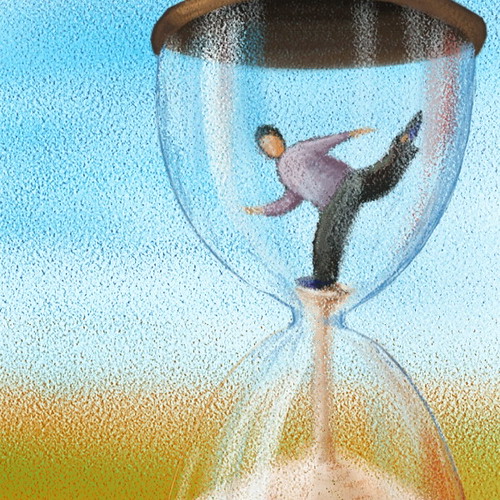Our typical emotional reactions to certain types of situations often change over time, without us deliberately trying to change them. This applies for social confidence as well, which is a motive that gets many people who are shy or socially anxious asking themselves: will my social confidence improve over time, if I just wait?
Of course, it’s comforting to think that it does. All you have to do is wait, do nothing, and eventually you’ll stop being shy and be more confident. But could this be true? Here is my answer, based on my 5+ years of experience as a confidence coach.
First of all, in my experience, there is no universal rule. When people who lack social confidence do not attempt to change this, there are several directions their social confidence can take on its own: sometimes it does indeed improve on its own, other times it gets worse, and other times it stays about the same.
The General Rule
Nevertheless, there is a general rule. There is a trend that you’ll see happening in about 80% or more of the cases. And this trend is that, unfortunately, unless you do something to improve your social confidence, it will gradually get worse over time, not better.
It’s not only my experience. Other coaches or psychologists who work with people with shyness or social anxiety have noticed this phenomenon; and various longitudinal studies of people with shyness or social anxiety point to the same conclusion.
 Why is this? Here’s the explanation.
Why is this? Here’s the explanation.
Over time, individuals who are at least moderately socially confident go out, meet people, have social interactions, and maintain an active social life.
Slowly but slowly, these experiences build their social skills and social intelligence. They get even better at understanding other people and relating to them, as well as understanding social dynamics and navigating them. This in time makes them even more confident.
Meanwhile, individuals who perceptibly lack social confidence avoid social events and they stay at home to play computer games or surf the net instead. Thus they get little social experience, so their social skills and social intelligence barely improve.
This widens the gap between their social competence and that of others around them. While others become more smooth and charismatic socially, learn how to be witty and read subtle social cues, they still don’t even know how to talk to people and hold a normal conversation.
And being aware of this widening gap, they feel even more nervous in social situations. The more they are left behind socially, the less socially confident they are. And that’s the sad truth.
The Biggest Exception
Out of all the exceptions, there is one big one though, which I would like to point out.
As I said, for some people, their social confidence does improve by itself over time. Most often, this is because they achieve success in some other area of their life and this improves their self-image.
For instance, maybe they achieve success in their professional life by constantly honing their job-related skills. They climb the career ladder, they get professional recognition or they make a lot of money.
This makes them feel better about themselves, and see themselves as more entitled to be liked by others. So they go into social settings with a newly discovered confidence, which makes it easier for them to have social interactions, which gets them more social experience, which gets them more social skills, which makes them even more confident, and a positive cycle ensues.
However, even this exception has its own big exception. Many times, even if a person does achieve great success in some other area of their life, it will not make them more socially confident at all.
Because as you already know if you’ve watched this instructional video I created, the correlation between your achievements in life and your social confidence is frequently very small. You can be the smartest, wealthiest and most capable person in the room, but your mind can still mess with you and make you feel like a loser.
This, along with the fact that the general rule is for social confidence to decrease over time if it’s already not very good, means that there is only one sensible thing to do if you lack social confidence: seek to do something about it.
The Really Good News
The best news is that you can take charge. Your confidence will likely go down over time if you do nothing. Maybe you’ve already experienced this. However, fortunately, you can do something to make your confidence go up like a rocket instead.
First of all, you can take action instead of waiting and just reading stuff. You need to start working deliberately at changing the way you see yourself, others and social situations, as well as the way you relate to others in social situations, in order to build your confidence.
Secondly, the technology you apply for building social confidence has to be effective. There is a lot of generic, repetitive and simplistic advice out there for overcoming social insecurities, and it just doesn’t work.
This is why I encourage you to get yourself a copy of my Conversation Confidence guide.
It’s a practical, proven transformational program, and it will teach you a highly effective, step-by-step formula for turning shyness and social anxiety into social confidence. Check it out here, and have a look at the testimonials here.
As you gain some social confidence and your social life begins to improve, it’s even easier to get additional social confidence and enhance your social life even more. Conversely, the more you wait and do nothing, the worse your social confidence gets and the harder it is to pull yourself out of the whole you’re in.
So, no matter how low your confidence level is right now, know you can completely upgrade it, and wait no more. It’s time to take action!
Image courtesy of jenny downing



